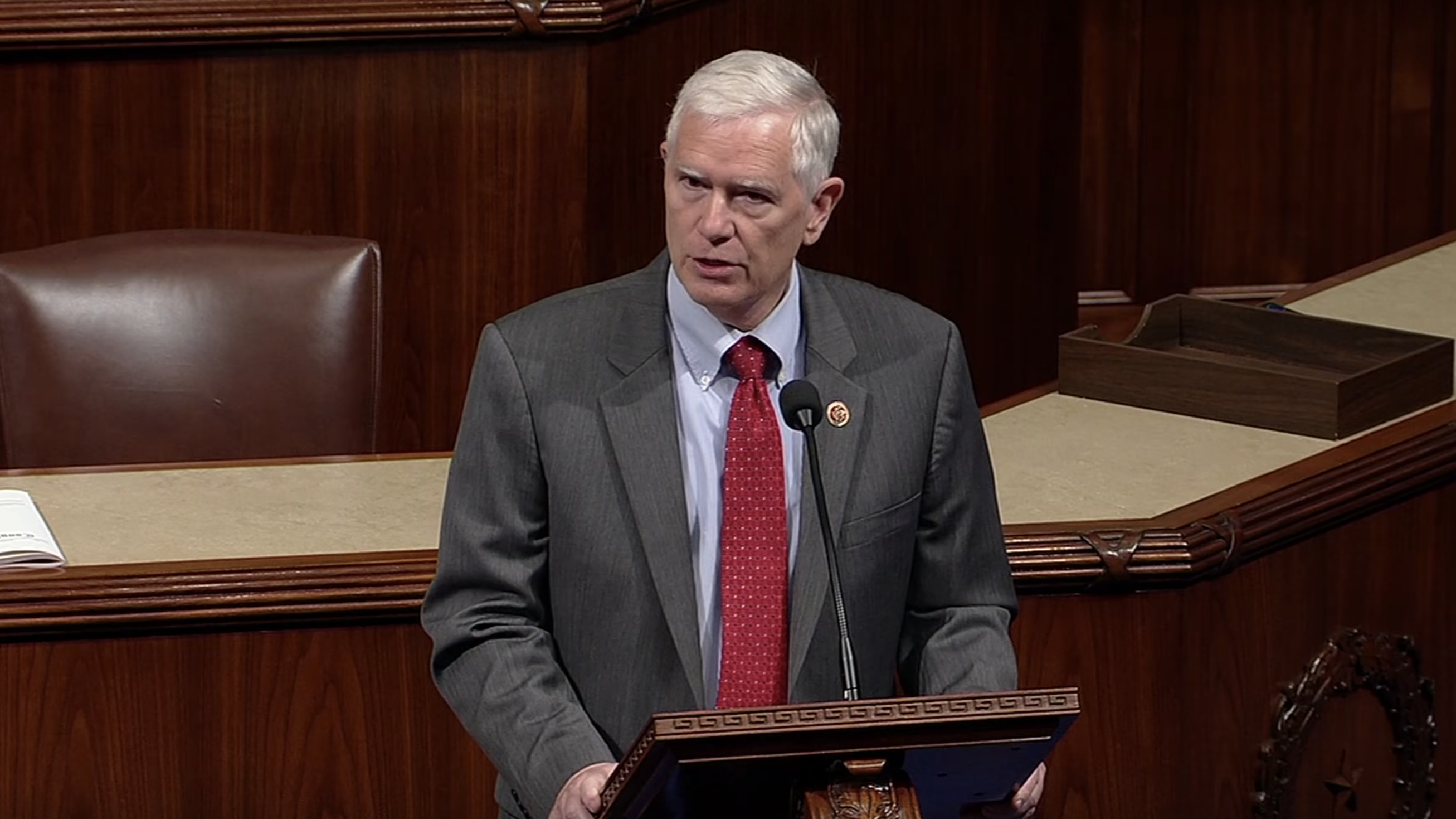Congressman Mo Brooks, R-Huntsville, on Tuesday voted against the National Defense Authorization Act, the appropriations bill that funds the military. The Fiscal Year 2021 NDAA passed the House 295 to 125 — and not along party lines. 187 Democrats voted yes while 43 voted against, and 108 Republicans voted yes while 81 voted no.
Brooks voted yes on an earlier “untainted” version of the appropriations bill that unanimously passed the House Armed Services Committee. The NDAA has historically been bipartisan so has been signed into law 59 consecutive years. The House of Representatives usually passes the NDAA on an overwhelmingly bipartisan vote.
This year, President Donald Trump is threatening to veto the NDAA because of the many provisions that were inserted in the bill on the House floor that he claims are “bad for national security.”
“Unfortunately, on the House Floor, the Socialist Democrat Party’s more radical elements seized the NDAA to do things that are either bad for national security or wholly unrelated to national security,” Brooks said.
Brooks listed a number of items that he objected to including.
Undermining a president’s ability to protect American citizens from rioting and looting in America’s major cities. Barring the Pentagon from testing the viability of America’s aging nuclear weapon systems; testing that is essential to deter a foreign adversary from engaging in a devastating nuclear first strike on American soil. Requiring that ‘student visas’ be issued to foreigners who do not attend classrooms in America (a matter wholly unrelated to national security). Racist language that requires the State Department to counter “white identity terrorism,” but not terrorism by any other race. Racist language that requires annual reports on “every incident of white supremacist activity” without requiring similar reports for racist incidents by any other race. Requiring taxpayers to pay for “public service announcements” on the “mental health of farmers” (a matter wholly unrelated to national security). Diverting national security funds for “the Olympics and Paralympics” (a matter wholly unrelated to national security). Diverting national security funding to pay for grants for bilingual students (a matter wholly unrelated to national security). Diverting national security funding to pay for cancer research (a matter wholly unrelated to national security). Requiring USAID to spend taxpayer dollars on “childhood development” in other countries (a matter wholly unrelated to American national security). Creating a “Southern New England Regional Commission” to help New England states compete for and take national security jobs from the rest of America. Requiring taxpayer-funded studies of ‘the school-to-prison pipeline’ political theme (a matter wholly unrelated to national security). Funding Patent and Trademark “teleworking’ programs (a matter wholly unrelated to national security). Requiring taxpayers to pay for various student loan protections and gifts (up to $10,000 per student) (a matter wholly unrelated to national security). Promoting racism and sexism by encouraging the DoD to create “apprenticeships and internships” based solely on race or sex. Spending taxpayer money to help “small businesses located in U.S. territories” better compete for national security work, thereby taking work and jobs from contractors in other parts of America. Inserting policies relating to national monuments and wildernesses (a matter wholly unrelated to national security). Barring “mineral and geothermal development” in over 1 million acres of Arizona land (a matter wholly unrelated to national security).
“Perhaps most startling, the radically altered House Floor version of the FY2021 National Defense Authorization Act is so bad that President Trump has formally threatened to veto it in its current form,” Brooks added. “That’s pretty indicative of how bad the FY21 NDAA became on the House Floor. I’m hopeful Senate and House conference committee members will strip these bad and unrelated changes to FY21 NDAA, and that the final conference committee bill will be good for America’s national security and worthy of my ‘Yes’ vote.”
Brooks represents Alabama’s 5th Congressional District. Brooks does not have a Democratic opponent in the November general election.
Advertisement. Scroll to continue reading.





















































